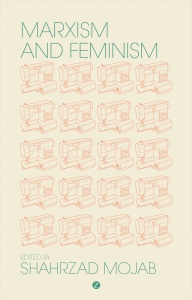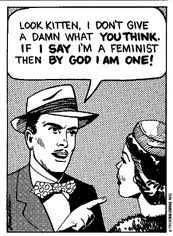EDUCATION, EQUALITY AND HUMAN RIGHTS – MIKE COLE – BOOK LAUNCH
BOOK LAUNCH
Education, Equality and Human Rights: Rights: Issues of Gender, ‘Race’, Sexuality, Disability and Social Class – Edited by Mike Cole
Professor Mike Cole, is a Professor of Education at the University of East London, UK
This event will be held at: The Cass School of Education and Communities, Room RB.G.13, Stratford Campus, University of East London, Water Lane, London, E15 4LZ
On: 31 January 2018, at 17.00-19.00
The fourth edition of Education, Equality and Human Rights has been fully updated to reflect the economic, political, social and cultural changes in educational and political policy and practice, as austerity continues and in the light of the EU referendum. Written by a carefully selected group of experts, each of the five equality issues of gender, ‘race’, sexuality, disability and social class are covered as areas in their own right as well as in relation to education.
Key issues explored include:
- Human rights, equality and education
- Women and equality, historically and now
- Gender and education perspectives throughout time
- Racism in the UK from the Empire to the present
- Racism and education from imperial times to the May government
- The making and remaking of sexualities
- The challenges surrounding teaching and learning about sexuality in schools
- The struggle for disability equality
- Inclusive education
- Social class, Marxism and socialism
- Social class inequality and education.
With an uncompromising and rigorous analysis of education and human rights and a foreword from Professor Peter McLaren, Education, Equality and Human Rights is an essential resource across a wide range of disciplines and for all those interested in education, social policy and human rights.
Mike Cole is Professor of Education at the University of East London, UK.
His latest books are Racism: A Critical Analysis (2016); Critical Race Theory and Education: A Marxist Response, Revised Second Edition (2017), and New Developments in Critical Race Theory and Education: Revisiting Racialized Capitalism and Socialism in Austerity (2017).
The Contributors:
Simon Forrest is Professor of Social Sciences in Medicine and Head of the School of Medicine, Pharmacy and Health at Durham University. He has a background in school teaching and research related to young people’s sexual lifestyles, risks, relationships and identities. He has co-authored a book supporting teaching about homosexuality in the context of schools, Talking About Homosexuality in the Secondary School (AVERT, 1997), and has since published numerous papers and other articles in the field of young people’s sexual attitudes and lifestyles. He is Chair of the Board of Trustees at AVERT, a leading global AIDS charity, and contributes to local and national initiatives aiming to support boys and young men.
Jane Kelly taught Art History and Women’s Studies at Kingston University until she retired in 2002. Since then she has been involved in Southwark Day Centre for Asylum Seekers which has three day centres, each open one day a week. In addition, she has recently rejoined the Labour Party.
Alpesh Maisuria is a Senior Lecturer with an expertise in social class and educational policy. His current research is based on the neoliberalisation of education in England, drawing upon Marxism and critical realism to understand these developments as ideologically driven. He also has an interest in Swedish social democracy and communism and education policy. He is also Deputy Editor of the Journal for Critical Education Policy Studies (JCEPS).
Jane Martin is Professor of Social History of Education at the University of Birmingham. Her first book, Women and the Politics of Schooling in Victorian and Edwardian England, won the History of Education Society (UK) Book Prize in 2002. She has published widely in various international journals in the field of gender and education, history of education, sociology of education and women’s history. She is joint editor of the Routledge Progressive Education Series. Her most recent book is Making Socialists: Mary Bridges Adams and the Fight for Knowledge and Power, 1855–1939 (Manchester University Press, 2013). Future publications include Gender and Education in England since 1770: A social history to be published in the Palgrave Macmillan Gender and Women’s History Series in 2018; and a biography of author, teacher and socialist Caroline Benn (1926–2000).
Peter McLaren is Distinguished Professor in Critical Studies, College of Educational Studies, Chapman University, where he serves as Co-Director of the Paulo Freire Democratic Project and International Ambassador for Global Ethics and Social Justice. He is also Honorary Chair Professor at Northeast Normal University, China, where he serves as Honorary Co-Director of the Center for Critical Pedagogy Research. Professor McLaren is the author and editor of 45 books, and his writings have been translated into 30 languages.
Richard Rieser is a disabled teacher, trainer, writer, speaker, campaigner, film maker, and an international advocate/consultant for inclusive education and disability equality in many countries around the world. He runs World of Inclusion Ltd (www.worldofinclusion.com). As a disabled teacher, Richard taught for 25 years in primary, secondary, FE, and lastly as an Advisory Teacher for Inclusion in the London Borough of Hackney. After this he became full-time Director of the charity Disability Equality in Education, which trained over 120,000 education professionals. All Richard’s work is prompted by disability equality, inclusion and the social model of disability. Richard was UKDPC representative at the Ad hoc Committee framing the UN Convention on the Rights of Persons with Disabilities. He is author of the only handbook on implementing Article 24: Inclusive Education, for the Commonwealth. He has held many positions, including UK Rep on the European Disability Forum from 2004 to 2012, Chair of the Alliance for Inclusive Education and Vice Chair of Council for Disabled Children for 12 years and on various UK government committees. He is Coordinator of UK Disability History Month (www.ukdhm.org). Recently, World of Inclusion won an award at the Zero Conference, 2016 for a series of anti-disablist bullying films
***END***
Posted here by Glenn Rikowski
Glenn Rikowski @ Academia: http://independent.academia.edu/GlennRikowski
Glenn Rikowski @ ResearchGate: https://www.researchgate.net/profile/Glenn_Rikowski
Ruth Rikowski @ Academia: http://lsbu.academia.edu/RuthRikowski






















